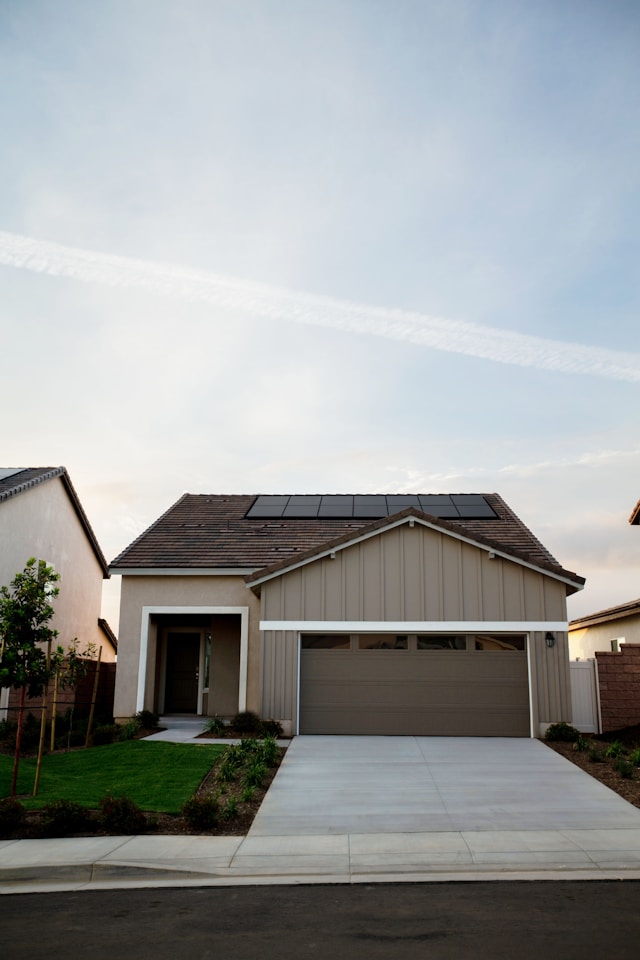Solar Panels on a Rental Property: Is it a Smart Investment?
The mammoth surge in renewable energy demands has brought solar panels to the forefront of sustainable living; still, when it comes to rental properties, the question arises: are solar panels a smart investment? Here, we'll delve into the pros and cons of installing solar panels on a rental property, considering financial, environmental, and market factor implications.
Initial Investment vs. Long-Term Savings
There's no denying that solar panels represent a significant upfront investment, but they can lead to substantial long-term savings.
Initial Costs
The cost of solar panel installation varies depending on the size and type of the property. On average, residential solar panel systems can cost between $18,000 to $20,000 before tax credits and incentives; when budgeting for solar, it's crucial to consider not only the purchase price, but also installation and potential grid connection fees.
Long-Term Savings
According to the U.S. Department of Energy, the average solar panel system can save a homeowner up to a significant $1,500 a year on electricity bills. Furthermore, a study by the National Renewable Energy Laboratory (NREL) found that properties with solar panels tend to sell 20% faster and for 17% more than those without.

Tax Incentives
Many governments offer tax breaks and incentives for solar panel installations. In the United States, for example, the federal solar tax credit allows taxpayers to claim 26% of installation costs for systems installed by 2022, which reduces to 22% in 2023 before expiring in 2024.
Property Value and Market Appeal
The installation of solar panels can enhance property value and appeal to a growing eco-conscious rental market.
Increased Property Value
A report by Zillow found that homes with solar energy systems sold for 4.1% more on average than comparable homes without solar power. For a median-valued home, this translates to an additional $9,274.
Attracting Eco-Friendly Tenants
A survey by the National Association of Realtors found that 59% of respondents were interested in sustainability and eco-friendly living options; properties that feature solar panels can tap into this growing market segment, potentially decreasing vacancy rates.
Environmental Impact and Social Responsibility
It's important to not lose sight of the fact that implementing solar energy in rental properties goes beyond the number crunching, as it also significantly contributes to environmental sustainability and social responsibility.
Carbon Footprint Reduction
The U.S. Environmental Protection Agency notes that an average residential solar panel system can reduce carbon emissions by approximately 100 tons over its lifetime, thus significantly contributing to environmental sustainability.
Public Perception
Properties with sustainable features can enhance their desirability and reputation, particularly among younger demographics who prioritize environmental responsibility.
Maintenance and Durability Concerns
Despite the initial investment, solar panels are generally low-maintenance and highly durable, making them a practical addition to rental properties.
Low Maintenance Costs
Solar panels generally require little maintenance beyond occasional cleaning and inspection. The average maintenance cost can be as low as 1% of the total system cost per year.

Reliability and Warranty
Most solar panels are designed to withstand harsh weather conditions and come with warranties that guarantee performance, typically for 25 years.
Legal and Administrative Considerations
Permissions and Regulations
It's important to note that the installation of solar panels involves navigating a series of legal and administrative processes that are crucial for compliance and optimal operation.
Regulatory Landscape
Navigating local regulations and building codes can be complex; the Database of State Incentives for Renewables & Efficiency (DSIRE) is an excellent resource for understanding local policies.
Tenant Engagement
Educating tenants about solar energy benefits can promote responsible energy use and enhance satisfaction with the property.
Emerging Trends in Solar Technology
Advancements in solar technology are making solar panels ever more efficient and affordable.
Technological Innovations
Recent advancements in photovoltaic (PV) technology have led to higher efficiency rates and longer lifespans for solar panels. Meanwhile, cutting-edge innovations, such as bifacial solar panels and solar shingles, are revolutionizing how solar energy is harvested.
Energy Storage Solutions
The development of more efficient and cost-effective energy storage systems, such as solar batteries, is enhancing the viability of solar power, enabling properties to store excess energy for use during overcast weather periods - no sun, no solar? Not true!
Potential Challenges and Solutions
While the benefits are numerous, landlords face several challenges when implementing solar solutions.
Initial Financial Barrier
As Realtor Darren Robertson says, "The significant upfront cost remains a barrier for many property owners. Solutions like solar leasing or Power Purchase Agreements (PPAs) can mitigate this issue, allowing landlords to install solar panels with little or no upfront costs."
Tenant Turnover and Usage Patterns
Landlords need to consider the varying energy needs and usage patterns of different tenants. Implementing a fair and transparent billing or incentive system for energy usage can help to address this challenge.
Future Outlook and Policy Landscape
The future of solar energy in rental properties is heavily influenced by policy changes and market trends.
Government Policies and Incentives
Changes in government policies, such as subsidies and incentives for renewable energy, will significantly impact the adoption rate of solar technology in rental properties.
Market Trends
As public awareness and demand for sustainable living options grow, the market for rental properties with solar panels is expected to expand; this trend could also be accelerated further by societal shifts towards environmental consciousness and sustainable living.
Likely a Wise Investment
Solar panels on a rental property can certainly be a wise investment, offering up long-term savings, increased property value, an added attraction for eco-conscious tenants, and a positive contribution to the environment. Nevertheless, the decision must be weighed up against the initial cost, any-and-all maintenance considerations, and legal aspects. Ultimately, wherever viable, integrating solar energy into a rental property aligns with a future-oriented approach to property management, blending financial savvy with environmental responsibility.